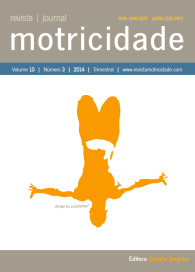Resistance exercise performed with repetitions until failure affects nocturnal blood pressure decreases in hypertensive women
DOI:
https://doi.org/10.6063/motricidade.4706Abstract
Studies have shown that resistance exercise reduces 24-hour blood pressure to levels below resting values, although this is not a universal finding. The number of repetitions has been shown to influence this response. Thus, the aim of the study was to analyze the effects of resistance exercise performed until failure (UF) on 24-hour blood pressure in hypertensive women. Thirteen hypertensive women underwent three experimental sessions in random order: UF, resistance exercise with repetitions before concentric failure (BF) and control (C). Prior to and up to 24 hours after the sessions, cardiovascular variables, as well as the nocturnal fall in blood pressure, the morning surge, and the presence or absence of a blood pressure dip pattern were established using an ambulatory blood pressure monitor. In both wakefulness and sleep there was no significant difference among the three groups. However, after UF and C fewer patients presented a dip in blood pressure (46% and 38%, respectively) compared BF (77%), p=0.047. In conclusion, the UF attenuated blood pressure dips at night in hypertensive patients.
Downloads
Published
Issue
Section
License
The authors of submitted manuscripts must transfer the full copyright to Journal Motricidade / Sílabas Didáticas Editions. Granting copyright permission allows the publication and dissemination of the article in printed or electronic formats, and copyrights start at the moment the manuscript is accepted for publication. It also allows Journal Motricidade to use and commercialise the article in terms of licensing, lending or selling its content to indexation/abstracts databases and other entities.
According to the terms of the Creative Commons licence, authors may reproduce a reasonable number of copies for personal or professional purposes, but without any economic gain. SHERPA/RoMEO allows authors to post a final digital copy (post-printing version) of the article on their websites or on their institutions' scientific repository.


